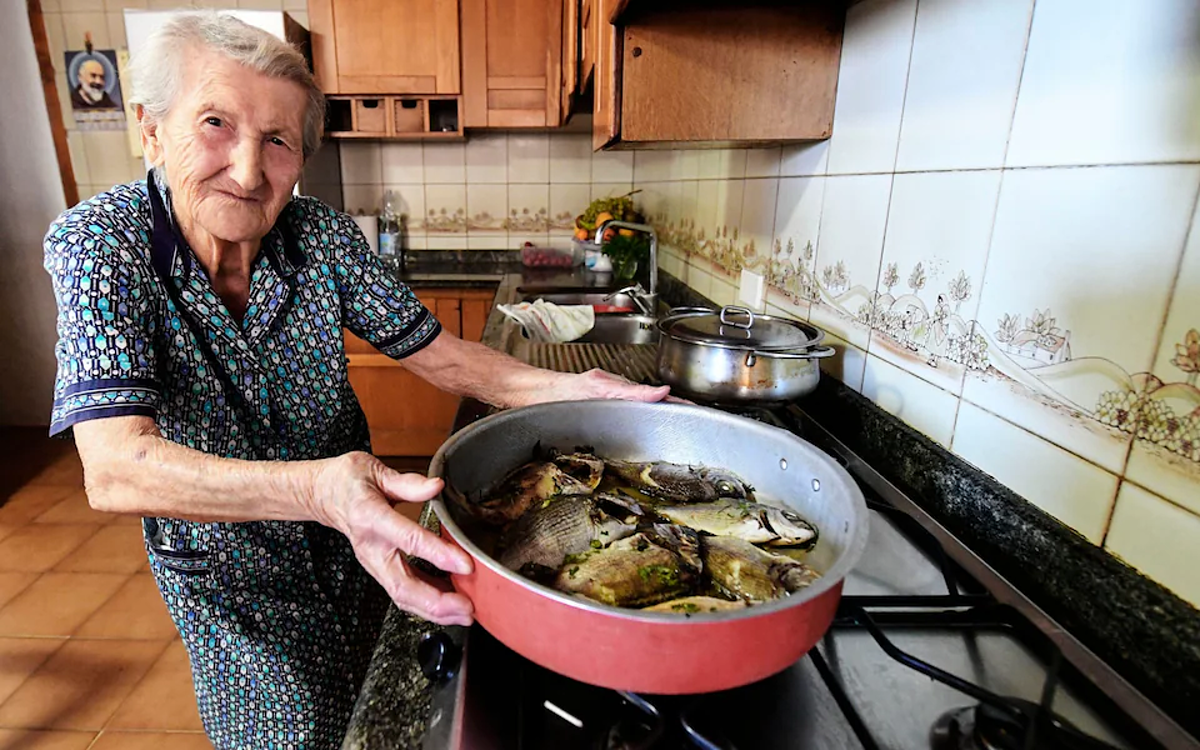On Italy's western coast, south of Naples, the Cilento region is renowned for its national park overlooking the Mediterranean Sea and, notably, its unusually high proportion of centenarians. Approximately 300 residents here have lived past 100, enjoying good health, free from heart disease or mental disorders.
"I was astonished to see people over 90 in good health, without cardiovascular disease, very active, and not even needing glasses," said Professor Salvatore Di Somma, founder of Great Health Science and the first doctor to study Cilento's residents in the late 1970s.
After over a decade of research in collaboration with Italian and American scientists on the CIAO (Cilento Initiative on Aging Outcomes) project, Di Somma asserts that Cilento should be officially recognized as a "Blue Zone," similar to Sardinia or the Greek island of Ikaria.
"Blue Zone" refers to regions worldwide where people live exceptionally long and healthy lives due to their unique lifestyle, diet, and environment. Experts have gleaned valuable lessons from this region.
Olive oil: More than just a cooking ingredient
For 101-year-old Nicolina, a resident of Eremiti village, homemade olive oil is a panacea. She uses it to treat colds and constipation, considering it an essential part of her daily diet.
Olive oil is rich in antioxidants, beneficial for cardiovascular health and digestion. Cilento is where physiologist Ancel Keys first discovered the link between the Mediterranean diet and low cardiovascular risk in the 1950s. In 2022, a Harvard University study found that consuming more than half a tablespoon of olive oil daily, especially as a substitute for butter, margarine, or mayonnaise, can contribute to longevity thanks to its anti-inflammatory properties and ability to lower bad cholesterol.
Di Somma and his colleagues compared Cilento residents with those in Malmo, Sweden. In Northern Europe, dietary habits and lifestyles differ significantly: people consume more meat and use butter instead of olive oil. The study revealed that Swedes have a higher risk of cardiovascular disease and cancer, as well as higher levels of bad cholesterol (LDL). The research team concluded that the Mediterranean diet plays a vital role in the health of Cilento's residents, although other factors also contribute.
Limited red meat, abundant anchovies
Cilento residents consume very little beef, rarely eating meat at all. Their diet centers around fruits, vegetables, nuts, beans, bread, and whole grains. They use rosemary as a seasoning, and their primary protein source is fish and seafood, especially anchovies.
While red meat provides protein and iron, numerous studies link its regular consumption to an increased risk of cancer. In 2019, Oxford University found that consuming red meat even once a day increases the risk of bowel cancer by 20%. Meanwhile, anchovies, despite their strong flavor, are rich in omega-3 fatty acids, beneficial for cardiovascular health.
 |
101-year-old Nicolina prepares a fish dish. Cilento residents often consume fish instead of red meat. Photo: Telegraph |
101-year-old Nicolina prepares a fish dish. Cilento residents often consume fish instead of red meat. Photo: Telegraph
Cooking, singing, and prayer for mental clarity
Like Nicolina, many elderly Cilento residents have excellent memories and remain active. She vividly remembers friends who passed away years ago and regularly bakes biscuits for visitors. Another resident, 98-year-old Ida from Gioi village, still makes fresh pasta and enjoys singing.
In 2020, the research team compared loneliness levels and emotional intelligence scores of middle-aged and older adults in Cilento with those in San Diego, USA. They used two scales: the UCLA Loneliness Scale and the San Diego Wisdom Scale, which encompasses seven criteria, including emotional regulation, spirituality, and acceptance of diverse perspectives.
The results indicated that Cilento residents possess strong cognitive health, correlated with high wisdom scores. Di Somma suggests that their strong Christian faith plays a significant role, providing them with a sense of purpose, reducing depression, and protecting against Alzheimer's. A 2023 University College London (UCL) study also showed that maintaining personal hobbies enhances happiness, satisfaction, and cognitive function.
Aging in place, not in nursing homes
Nursing homes are non-existent in Cilento. Elderly residents live in houses that have belonged to their families for over 400 years, receiving daily visits from children, grandchildren, and neighbors. Nicolina lives alone, but her son visits every evening, and friends and neighbors check in regularly. Despite offers of assistance, she prefers independence and declines help.
The strong intergenerational bonds, spirit of independence, and sense of community are believed to contribute to the residents' longevity, mental clarity, and happiness. This contrasts sharply with the situation in the UK, where nearly half a million people live in nursing homes, and many elderly individuals face isolation and complex health issues.
Gardening and walking for physical fitness
The hilly terrain makes physical activity, such as walking uphill and gardening, a natural part of daily life. Cilento residents learn to grow vegetables from a young age and continue this practice into old age, considering it a family tradition.
A 2023 GeroScience study indicated that regular walking improves cardiovascular health and lowers blood pressure. A 2024 study also showed that gardening enhances physical health and promotes healthy behaviors like consuming more fruits and vegetables.
Non-materialistic values, simple living, and optimism
Cilento residents have little need for cars, phones, or expensive clothes. They enjoy a high quality of life despite not being wealthy, as most of their possessions are inherited or inexpensive. Nicolina finds contentment listening to Radio Maria, the Catholic radio station, and preparing food for guests.
Dr. Brenner notes that the residents demonstrate resilience, resourcefulness, and a positive attitude. A 2022 study analyzing the Cilento population concluded that their love for the land, family, and faith contributes to their mental well-being, fostering optimism and resilience.
Thuc Linh (Telegraph)












